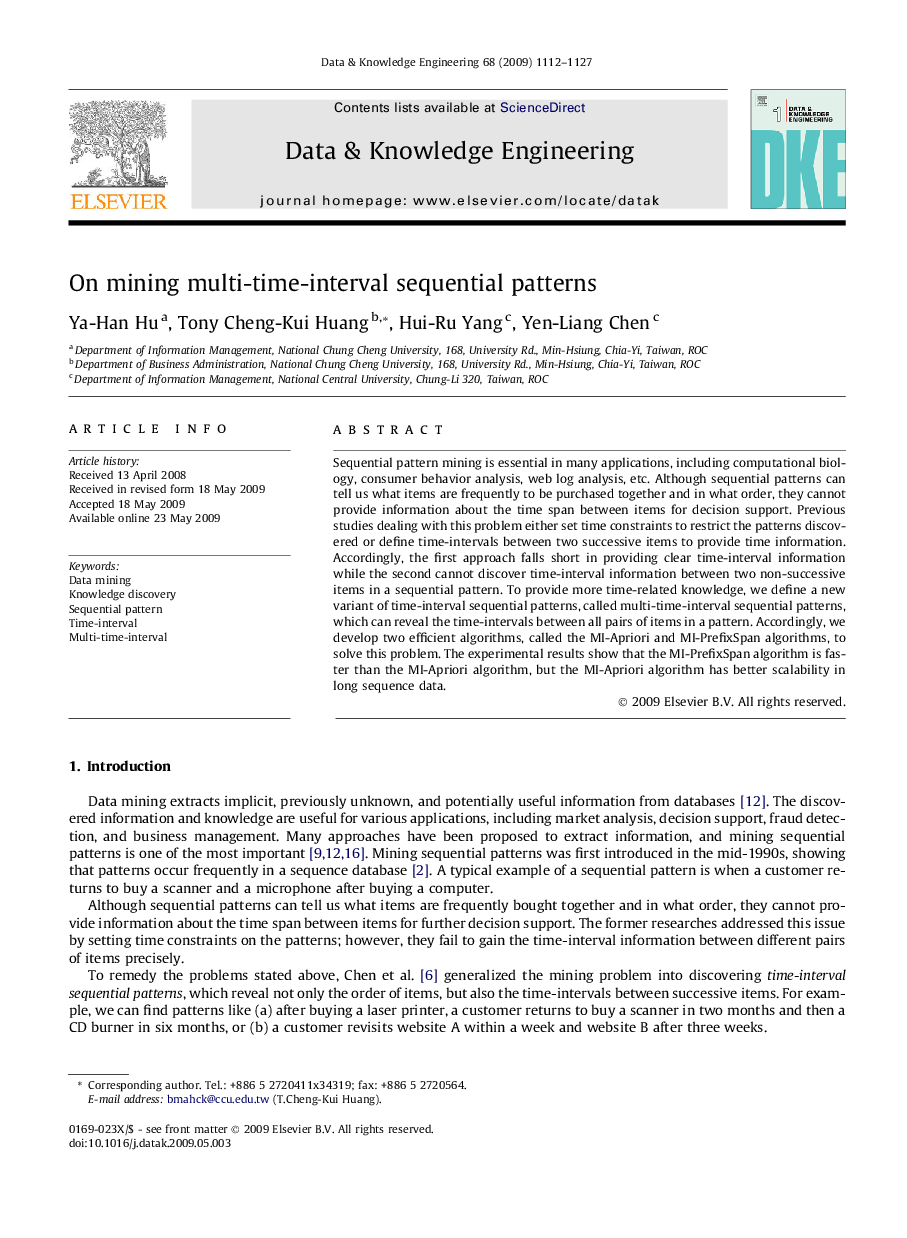| Article ID | Journal | Published Year | Pages | File Type |
|---|---|---|---|---|
| 379035 | Data & Knowledge Engineering | 2009 | 16 Pages |
Sequential pattern mining is essential in many applications, including computational biology, consumer behavior analysis, web log analysis, etc. Although sequential patterns can tell us what items are frequently to be purchased together and in what order, they cannot provide information about the time span between items for decision support. Previous studies dealing with this problem either set time constraints to restrict the patterns discovered or define time-intervals between two successive items to provide time information. Accordingly, the first approach falls short in providing clear time-interval information while the second cannot discover time-interval information between two non-successive items in a sequential pattern. To provide more time-related knowledge, we define a new variant of time-interval sequential patterns, called multi-time-interval sequential patterns, which can reveal the time-intervals between all pairs of items in a pattern. Accordingly, we develop two efficient algorithms, called the MI-Apriori and MI-PrefixSpan algorithms, to solve this problem. The experimental results show that the MI-PrefixSpan algorithm is faster than the MI-Apriori algorithm, but the MI-Apriori algorithm has better scalability in long sequence data.
